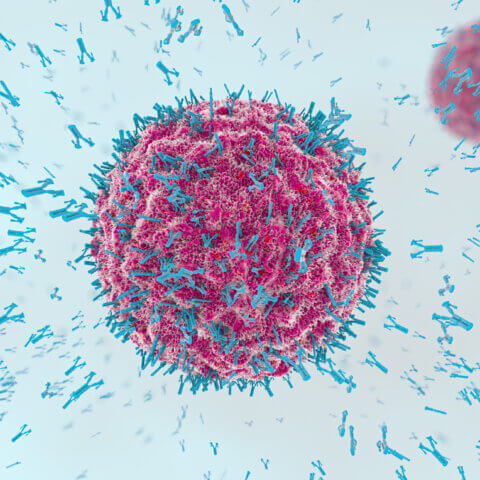Decentralized clinical trials (DCTs) have emerged as a promising solution to address the unique challenges of pediatric rare disease research. In this blog, we discuss the intricate landscape of conducting clinical research in pediatric rare diseases, identify the unique challenges, discuss the potential of decentralized trial strategies, and underscore relevant risks and considerations.
Navigating the Complexities of Pediatric Rare Disease Trials
Both pediatric and rare disease trials are fraught with distinct challenges. Combined, these challenges are amplified. Children represent a vulnerable population, and rare diseases inherently affect a limited and geographically dispersed population.
Recruitment for pediatric rare disease trials is complex, involving not just the patient but their entire family. Balancing school schedules, work responsibilities, and family obligations to accommodate study participation is a monumental task for patients, parents, and caregivers.
Moreover, children with rare diseases are often fragile, making travel to study sites difficult or impossible. Parents and caregivers bear additional financial responsibilities and sacrifice precious time away from work to ensure safe travel. The trials’ long follow-up periods also pose retention challenges.
The Benefits of Decentralized Clinical Trials
A DCT is a type of study that incorporates remote or decentralized elements, reducing or eliminating the need for participants to visit physical clinical trial sites, such as hospitals or research centers. In DCTs, various aspects of the study, including recruitment, informed consent, data collection, and monitoring, are conducted remotely, often leveraging digital technologies and telehealth solutions.
These tools can be used to design a fully decentralized trial or a hybrid study that combines on-site and decentralized elements. In either case, by incorporating decentralized elements, DCTs have the potential to revolutionize pediatric rare disease research in four important ways:
- Experience demonstrates that patient retention tends to improve in decentralized trials or those allowing in-home visits. This approach increases patient comfort, reduces anxiety, and eliminates the risk of unnecessary exposure to contagious diseases at physical sites.
- Decentralization can reduce out-of-pocket costs and travel time for patients and families when in-home visits are possible.
- Decentralization fosters equity and diversity in clinical trial participation by enabling patients who might not otherwise travel to join the study.
- DCTs prioritize patient convenience and engagement, strengthening the connection between researchers and participants.
Pediatric Studies Embrace the Decentralized Progression1
According to Clinical Trials Arena, pediatric studies are more likely to include decentralization components compared to other trials. Analysis shows that as of January 1, 2022, 11.6 percent of all pediatric trials featured a decentralization element, while only 8 percent of non-pediatric trials did.1 Certain therapeutic categories lend themselves well to decentralization.
For example, pediatric metabolic studies boasted a high DCT rate, with 14.4 percent integrating decentralized elements.1 Approximately 35 percent of all pediatric diabetes studies have adopted a decentralized approach since 2010.1 Pediatric clinical trials of genetic disorders also show a high DCT rate, with 9.5 percent featuring decentralized elements.1
Challenges and Key Considerations for Sponsors
While decentralized trials offer immense potential, they present unique challenges. In pediatric rare diseases, fully decentralized trials may not always be feasible, except for natural history studies without interventions.
Sponsors must meticulously analyze their study protocols and assessments, taking into account patient and family expectations. They also must identify the necessary equipment and staff for in-home assessments, ensuring participants or parents can safely perform them. Shipping and administration of investigational drugs or products needs evaluation and may have specific requirements.
Finally, sponsors should weigh the convenience for patients and families against the expenses associated with decentralized elements. Note that DCTs are not necessarily less expensive but may enroll more quickly.
Strategies for Seamless Operationalization of DCTs
Operationalizing pediatric rare disease studies with decentralized elements requires careful attention to numerous factors. Ensuring reliable internet access for patients and families is vital for remote participation. Proper logistics planning is necessary, especially when shipping investigational drugs or other products directly to patients’ homes.
Additionally, adapting technology and assessments to suit the age ranges of the target patient population, considering language, comprehension levels, and age-appropriate vocabulary, is essential. Specialized training should be provided to study personnel, covering both technical aspects and communication strategies.
Lastly, establishing frequent communication with patients and families through texting platforms, social media, and support call centers is crucial for successful implementation.
Charting the Future of Decentralized Clinical Trials
Decentralized clinical trials have the potential to address the unique challenges faced in conducting research in pediatric rare diseases. With the right planning, technology, and patient-centric focus, decentralized trials can pave the way for more inclusive and efficient pediatric rare disease research, ultimately leading to improved treatments and outcomes for these vulnerable patient populations.
As we look forward, a hybrid model for clinical trials is gaining acceptance, and we are heading towards a future where decentralized trials play a more significant role, driven by regulatory guidance, evolving technologies, and a commitment to reducing the burden of study participation on patients and families.
Premier Research specializes in executing decentralized trial models that overcome recruitment, retention, and logistical challenges. If you’re navigating the complex landscape of pediatric rare disease trials, contact us to see how we can help.
[1] Clinical Trials Arena. Decentralized pediatric clinical trials trending up but study execution critical, July 8, 2022. Available at https://www.clinicaltrialsarena.com/features/decentralised-paediatric-clinical-trials/.



